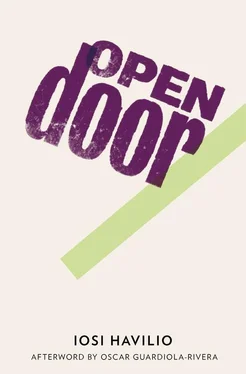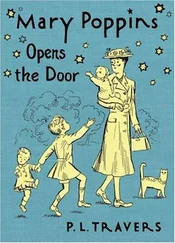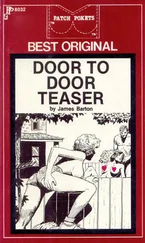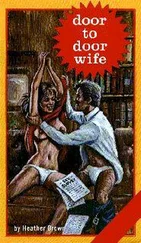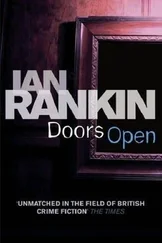Iosi Havilio - Open Door
Здесь есть возможность читать онлайн «Iosi Havilio - Open Door» весь текст электронной книги совершенно бесплатно (целиком полную версию без сокращений). В некоторых случаях можно слушать аудио, скачать через торрент в формате fb2 и присутствует краткое содержание. Год выпуска: 2013, Издательство: And Other Stories, Жанр: Современная проза, на английском языке. Описание произведения, (предисловие) а так же отзывы посетителей доступны на портале библиотеки ЛибКат.
- Название:Open Door
- Автор:
- Издательство:And Other Stories
- Жанр:
- Год:2013
- ISBN:нет данных
- Рейтинг книги:4 / 5. Голосов: 1
-
Избранное:Добавить в избранное
- Отзывы:
-
Ваша оценка:
- 80
- 1
- 2
- 3
- 4
- 5
Open Door: краткое содержание, описание и аннотация
Предлагаем к чтению аннотацию, описание, краткое содержание или предисловие (зависит от того, что написал сам автор книги «Open Door»). Если вы не нашли необходимую информацию о книге — напишите в комментариях, мы постараемся отыскать её.
Iosi Havilio
Open Door
Open Door — читать онлайн бесплатно полную книгу (весь текст) целиком
Ниже представлен текст книги, разбитый по страницам. Система сохранения места последней прочитанной страницы, позволяет с удобством читать онлайн бесплатно книгу «Open Door», без необходимости каждый раз заново искать на чём Вы остановились. Поставьте закладку, и сможете в любой момент перейти на страницу, на которой закончили чтение.
Интервал:
Закладка:
Drugs don’t always act the same way, it all depends on the person and the circumstances. The lad in denim, who had struck me as the most laid-back of the three, was retreating into himself. The fat one, on the other hand, had taken down his hood and was getting more and more excitable by the minute. The blond boy, like a good leader, didn’t seem to be affected.
‘We want you to suck us off,’ the little fatty said out of nowhere, projecting the not-yet-fully-formed voice of an overweight adolescent.
The blond boy released a smoke-filled laugh. The one in denim turned pale, then red. All the blood rushed to the fat boy’s head, enough for the three of them. And he laughed too, through clenched teeth. As I didn’t say anything, didn’t even move, their nerves finally got the better of them and they passed me the joint again. The round continued without comment. When the joint had finished, we said goodbye with a kiss on the cheek, like good friends.
FOUR
It was getting dark. After my adventure in the yard, I went back to look for Aída at the door of the bar. I went in, checked the toilets, looked around the tables, but nothing, not a single clue as to where she might have gone. I crossed the street and sat down on a bench on the riverside. I lit a fresh cigarette and, with the smoke inside me, the effects of the joint revived. I felt good.
I noted the time on my watch, five to nine, and started walking along the river. Up ahead, at the foot of the old bridge, not quite in focus yet, I make out a small crowd of people and a series of intermittent lights, now illuminating, now concealing them. I draw closer to find out what’s going on.
The police have set up a cordon to contain the fifteen or twenty onlookers pressed up against the railings at the riverbank. Most of them are probably there because they’ve seen other people stop first. In the street, next to a patrol car, there’s a fire engine and an ambulance with the doors wide open and a stretcher spilling halfway out onto the asphalt. All the lights are flashing: those on the patrol car very quick and blue, the fire brigade’s lazy and red; the lights on the ambulance aren’t revolving but flash intermittently, green and white. Together they merge, ricocheting off the opaque water, colouring the iron skeleton, creating sparks on the rust. The sirens are silent.
Like the others, elbow to elbow, squeezed into the narrow gully between bodies, I too lean against the railings. Like the others, I look upwards. Not just anywhere, but at the top of the bridge. I can’t see a thing. What’s going on, I ask. I can imagine what it is, but I’d prefer to be told. The lady next to me gestures with a finger and says: Up there, in the middle. I still can’t make out anything, the night is closing in, thick and starless. What’s going on, I ask. And the woman, whose face I now see is full of wrinkles, a red scarf patterned with arabesques knotted round her neck: There, walking on the ledge, can’t you see? Her voice is cracked, scratchy. There, look, he’s moving, on this side. Yes, I see, I’m starting to see. Nothing more than a shape, thin, with a point on top, slightly less black than the rest. That must be the head, then what I can only assume to be the torso, the arms, the legs, now I’m just seeing what I want to see. Because in truth, it’s exactly the same as before, just a shape moving slowly, clumsily, like an old machine with a broken engine.
In a minute, someone else appears next to the old woman, who has stopped talking now — a lad of around twenty in a blue sleeveless t-shirt and shorts with a pattern similar to that of the woman’s scarf. He’s wearing flip-flops and both his hands are busy, the one closest to me with a pizza in a box, still sealed, the other grasping the hand of a little girl in a yellow bikini, who, although she doesn’t look it, must be starting to feel cold. Does he want to jump? asks the lad, without looking at me. It looks like he wants to jump, he answers his own question. And then immediately, to the little girl: Don’t look. And the girl: Why, I want to see. The old woman starts talking again, without taking her eyes off the action up above: Look, and she points again, a bit higher up, as if she wants to reach the bridge with her hand. He’s moved across from the other side. Right in the middle, see? To think that he’s so young, says a new voice, a bit further over, a woman, not so hoarse as the one here next to me, and much fatter, a fake pearl necklace holding in her double chin. How can it be? she asks herself, or us. Nobody responds apart from the little girl: I see her, daddy. Is it a girl, daddy? I don’t know, and don’t look, I told you. How old is she daddy? And the father, who seems too young to be a father, is trying very hard to see what his daughter distinguished so quickly. Look, daddy, there’s another one, on this side. Is it another girl, daddy? It’s true: another shape appears on the stairs on this side of the river, then another, and another with a flashlight. These forms are much bulkier than the one in the middle of the bridge. The old women can’t see them, they’re getting desperate, and in this observatory, thirty or forty metres away, a contest begins to see who can guess the next move. There are cries of: Look, there are three of them, they’re surrounding him. There’s one further down, the other two have climbed higher up. Look, look everyone. And everyone has their own story. From behind, a tall man in a mechanic’s uniform of worn blue confirms in a fluty voice that the person wanting to jump is a man, that his wife is in the ambulance having a panic attack, and even ventures: He must be desperate. Do you know him? The woman with the fake pearl necklace doesn’t contradict him, she takes his word for it and follows the action. A fireman without a helmet seems to be directing the three rescuers’ mission from the base of the bridge through a walkie-talkie. At his side, a man from the coastguard, his light brown suit clinging to his body like a glove, issues instructions to his men who are floating in a small boat, quite precariously, circling aimlessly without lights under the arch of the bridge. Here and there they dodge clumps of water hyacinth. In order to communicate, the man from the coastguard forms a megaphone with his hands. We can’t make out a word. Further over, beyond the red and white tape, which blocks the path with the word danger every ten centimetres, there’s another group of people, smaller than ours, but among which can be discerned an old woman, a not-so-old woman, a mature man, another younger man, and two children rather than one. They don’t, however, have our secondary group of curious onlookers, who don’t dare approach the railings, preferring to remain protected by the darkness, but who comment, murmur and speculate all the same. Like the cars and buses, which, before turning into the avenue some fifty metres ahead, slow down without actually stopping, resembling a funeral cortège. Some drivers are in too much of a hurry and don’t have time to pay attention to the patrol cars, or the bridge, or the police cordon, far less to what is going on up above, and give three sharp blasts on their horns, as they would in celebration, to hurry on those ahead.
For a while nothing changes on the bridge. Some people get impatient, the girl wants to go, she’s hungry. And the father tries to lighten the mood with a joke at which no one laughs: Come on, mate, make your mind up, my pizza’s getting cold, he says to the person up there, who, of course, doesn’t hear him. Or maybe he does, because not a minute later we begin to notice movement once again on the cross-beam of the bridge. Two of the firemen stay at the highest point, illuminating the scene: what can they see, what are they planning, I wonder. The third is just a few metres away from the person threatening to jump, and he begins a game of push and pull, coming and going, in which one advances and the other retreats. They know, like two fencers contemplating one last, fatal lunge, that to touch the other would be to finish everything. The first must be saying something like: Stay there, I’m not going to do anything, I just want to talk to you. And the other: Come any closer and I’ll jump. Each wants the other to stay where he is. But until when? It’s a blind impasse, with no solution. One knows what he wants, the other, seemingly, does not.
Читать дальшеИнтервал:
Закладка:
Похожие книги на «Open Door»
Представляем Вашему вниманию похожие книги на «Open Door» списком для выбора. Мы отобрали схожую по названию и смыслу литературу в надежде предоставить читателям больше вариантов отыскать новые, интересные, ещё непрочитанные произведения.
Обсуждение, отзывы о книге «Open Door» и просто собственные мнения читателей. Оставьте ваши комментарии, напишите, что Вы думаете о произведении, его смысле или главных героях. Укажите что конкретно понравилось, а что нет, и почему Вы так считаете.
